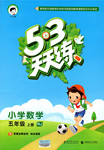题目内容
In a tiny room, Jenny was lying in bed waiting for an operation, nervous and worried. ______, another patient was squeezed in. After a gentle greeting, they _____ the chatting. The 80-year-old newcomer was named Susan. Her son ____ ran a company as CEO and her daughter worked on a TV station as director. Since her children were too ____ to take care of Susan, she lived in an old people’s home. Susan was proud of her children who had wonderful ___ . Jenny really______Susan. Compared with Susan, Jenny was ____ but an ordinary country woman whose children were just ordinary workers.
Soon, it was supper time, Jenny’s daughter cooked _____ dishes which were her favorite. Jenny invited Susan to share her supper, but she ____ .Susan was ____ her daughter when she received  a call. ____ ,her children couldn’t come to visit her. Worse still, Susan had ____ the mealtime in the hospital. She lay in bed, _____ and silent. Jenny’s daughter offered to buy her some food but she had no appetite ____ .
a call. ____ ,her children couldn’t come to visit her. Worse still, Susan had ____ the mealtime in the hospital. She lay in bed, _____ and silent. Jenny’s daughter offered to buy her some food but she had no appetite ____ .
The next day, Jenny and Susan would go through a series of regular medical checks before the operation. Jenny’s daughter ____ to her carefully while Susan was still alone. Out of sympathy, Jenny’s daughter offered to queue(排队) up, fill in different ____ and register for Susan. For several days in hospital, even during her _____,Susan’s children didn’t show up. Susan really envied Jenny whose daughter looked after her all the time ____ she recovered and moved out of hospital.
Care from the loved ones when ill can really make one happy and encouraged, especially for a(n)____ parent. So while devoted to your career, don’t forget your role in your ____ .
1.A. Respectably B. Unexpectedly C. Delightedly D. Patiently
2.A. succeeded in B. turned into C. brought about D. participated in
3.A. unnamedly B. successfully C. technically D. independently
4.A. guilty B. rough C. unwilling D. busy
5.A. improvements B. documents C. occupations D. conservations
6.A. respected B. impressed C. envied D. aroused
7.A. something B. nothing C. anything D. everything
8.A. an amount of B. a great deal C. a great many D. a plenty of
9.A. rejected B. paid C. misunderstood D. struggled
10.A. disturbing B. praising C. expecting D. inviting
11.A. Possibly B. Strangely C. Generally D. Unfortunately
12.A. knew B. missed C. followed D. ignored
13.A. disappointed B. anxious C. astonished D. nervous
14.A. in fact B. at once C. at all D. in length
15.A. obeyed B. examined C. attended D. protected
16.A. forms B. gaps C. positions D. surveys
17.A. checks B. recovery C. stay D. operation
18.A. unless B. although C. until D. because
19.A. ordinary B. loving C. careful D. aged
20.A. family B. health C. friendship D. growth
 53天天练系列答案
53天天练系列答案
